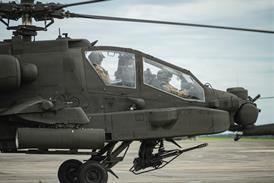Taiwanese manufacturer set to leave single-engined turboprop in the hands of Czech partner Aero Vodochody
Taiwan is seeking to pull out of its joint venture with the Czech Republic to develop the Ae270 as certification of the new single-engine turboprop slips into 2005.
Aerospace Industrial Development Corporation (AIDC) chairman Tao-Yu Sun says the Taiwanese government-owned company has decided against further investment in the project and is negotiating to transfer wing production to joint venture partner Aero Vodochody.
AIDC stopped producing Ae270 wings two months ago after delivering an initial batch of 10. AIDC is asking Aero Vodochody to assume responsibility for the entire project, including remaining development costs and all future production, but break-up negotiations have not yet been concluded.
Ibis Aerospace, the joint venture's US-based marketing arm, has already sold over 80 Ae270s, most in executive configuration. But certification, earlier delayed from December 2003 to the second half of 2004, is now not expected until January 2005.
"Even if they can get FAA approval next year, which we doubt very much, for this kind of airplane, the market potential is very low," says Sun. "Aero Vodochody wants us to extend our investment, but we decided not to. It was a tough decision because we've invested a lot already. But from a long-term point of view we want to pull out."
He adds AIDC has contributed $32 million to the programme and is hoping to recover a small portion of this investment as part of ongoing negotiations with the Czech Republic. AIDC is offering to help Aero Vodochody develop composite capabilities that are required to produce the Ae270 wing.
Ibis's Czech Republic-based area sales executive, Karel Sovalk, confirms AIDC is seeking to pull out of the project, but declines to comment, saying there is "no conclusion yet from this situation".
Aero Vodochody was unavailable for comment, but a source close to the programme says the company is evaluating whether to increase its investment or court alternative partners.
Sovalk says European and US certification has been pushed back until "the beginning" of next year because of unfavourable weather conditions for flight testing earlier this year. But he says the delay is not critical and limited deliveries of the aircraft are still planned for 2005.
BRENDAN SOBIE / SINGAPORE
Source: Flight International























